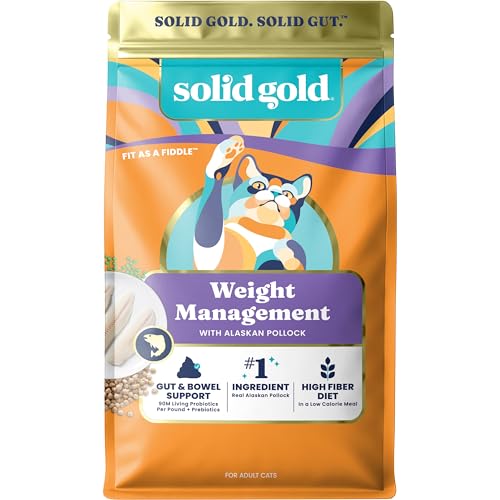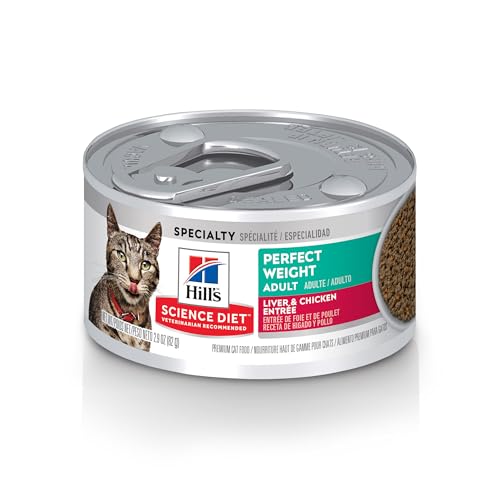Ideal Weight Range for Cats
Maintaining a healthy weight is crucial for your feline friend’s overall well-being. Just like humans, cats can experience health issues if they are underweight or overweight. So, what is the ideal weight range for cats? Let’s find out!
Every cat is unique, and their ideal weight can vary depending on factors such as age, breed, and body structure. However, there is a general weight range that can serve as a guideline for most cats. For an average-sized adult cat, the ideal weight is typically between 8 to 10 pounds (3.6 to 4.5 kilograms). Smaller breeds may weigh less, while larger breeds may be on the higher end of the range.
Maintaining your cat’s weight within this range is important for their overall health. Being overweight can lead to various health problems, including diabetes, joint issues, and heart disease. On the other hand, if your cat is underweight, it could be a sign of an underlying health condition or nutritional deficiency.
To ensure your cat maintains a healthy weight, here are a few tips:
- Regular Vet Check-ups: Schedule regular visits to the veterinarian to monitor your cat’s weight and overall health.
- Balanced Diet: Feed your cat a well-balanced diet formulated for their age and specific needs. Avoid overfeeding and limit treats.
- Portion Control: Measure your cat’s food portions to prevent overeating. Follow the feeding guidelines recommended by your vet or the cat food manufacturer.
- Exercise and Play: Encourage your cat to be active through playtime and interactive toys. Engaging in regular exercise helps burn calories and maintain a healthy weight.
Factors that Influence a Cat’s Weight
As a cat lover, it’s important for you to understand the factors that can influence your feline friend’s weight. Here are a few key factors to consider:
Age
Just like humans, a cat’s body changes as it ages. Kittens tend to have a higher metabolic rate and require more food to support their growth and development. Adult cats, on the other hand, may have a lower metabolic rate and can be more prone to weight gain if their caloric intake is not adjusted accordingly. Older cats may also experience a decrease in appetite, which can result in weight loss.
Breed and Body Structure
Different cat breeds have different body structures and sizes. Larger breeds, such as Maine Coons, may naturally weigh more than smaller breeds, like Siamese cats. It’s important to take into account your cat’s specific breed and body structure when determining their ideal weight range.
Lifestyle and Activity Level
A cat’s lifestyle and activity level play a significant role in maintaining a healthy weight. Indoor cats, who have limited opportunities to engage in physical activities, may be more prone to weight gain. On the other hand, cats that have access to outdoor space and are more active tend to burn more calories and maintain a healthier weight.
Spay/Neuter Status
Spaying or neutering your cat can have an impact on their weight. Some studies suggest that spayed or neutered cats may have a slightly lower metabolic rate, which means they may require fewer calories to maintain a healthy weight. It’s important to monitor their food intake and adjust it if necessary to prevent weight gain.
Remember, every cat is unique, and their ideal weight may vary. If you’re unsure about your cat’s weight or have concerns about their health, consult with your veterinarian. They can provide expert guidance and help you develop a plan to keep your furry friend in the best shape possible. So, keep these factors in mind and ensure that your cat’s weight is within the healthy range.
Tips for Maintaining Your Cat’s Weight
As a cat lover, you want to ensure that your feline friend is happy and healthy. One important aspect of your cat’s health is maintaining a proper weight. These tips will help you keep your cat at a healthy weight without depriving them of the love and treats they deserve.
- Portion Control: Just like humans, cats need to eat the right amount of food to maintain a healthy weight. Follow the feeding guidelines on the cat food packaging and use a measuring cup to ensure accurate portions. Avoid leaving food out all day as this can lead to overeating.
- Regular Exercise: Cats may seem like natural couch potatoes, but they still need exercise to stay fit. Play with your cat using toys that encourage movement, such as string toys or laser pointers. Aim for at least 10-15 minutes of active playtime each day to keep your cat’s weight in check.
- Choose Healthy Treats: Treats are a great way to show your cat some love, but opt for healthy options. Look for treats that are low in calories and specifically designed for weight control. You can also try using small pieces of your cat’s regular food as treats.
- Provide Enrichment: Cats are curious creatures and need mental stimulation to prevent boredom. Provide your cat with interactive toys or puzzle feeders that dispense food. This will keep them entertained while also slowing down their eating, which can help with weight management.
- Regular Vet Check-ups: It’s important to schedule regular check-ups with your veterinarian to monitor your cat’s weight and overall health. They can provide personalized recommendations based on your cat’s breed, age, and lifestyle.
Remember, maintaining a healthy weight for your cat is a long-term commitment. By following these tips, you can help ensure that your feline companion lives a happy and healthy life.
Conclusion
Taking care of your cat’s weight is essential for their overall well-being. By following the tips mentioned in this article, you can help your feline friend maintain a healthy weight and live a happy life.
Portion control is key when it comes to feeding your cat. By ensuring they receive the right amount of food each day, you can prevent overeating and obesity. Regular exercise is also important, as it helps your cat burn calories and stay active.
Choosing healthy treats for your cat is another way to manage their weight. Opt for treats that are low in calories and provide nutritional benefits. Additionally, providing enrichment activities, such as puzzle toys or interactive play, can keep your cat mentally stimulated and prevent boredom eating.
Lastly, scheduling regular vet check-ups is crucial. Your veterinarian can monitor your cat’s weight and provide guidance on maintaining a healthy diet and lifestyle.
Remember, a healthy weight is essential for your cat’s overall health and happiness. By implementing these tips, you can ensure that your furry friend stays in tip-top shape.
Frequently Asked Questions
Q: How can I maintain my cat’s weight?
A: Maintaining your cat’s weight can be achieved through portion control, regular exercise, and providing healthy treats. Ensure that you schedule regular vet check-ups for overall health monitoring.
Q: What is portion control for cats?
A: Portion control refers to measuring and feeding your cat the appropriate amount of food based on their weight, age, and activity level. This helps prevent overfeeding and obesity, ensuring your cat stays at a healthy weight.
Q: How can I keep my cat active?
A: Regular exercise is important for maintaining your cat’s weight. Encouraging playtime with interactive toys, laser pointers, and providing scratching posts can keep your cat engaged and physically active.
Q: Are treats necessary for a cat’s diet?
A: Treats can be a part of a cat’s diet but should be given in moderation. Opt for healthy treats specifically made for cats, avoiding human food that can be harmful. Always check with your veterinarian for appropriate treat options.
Q: Why is enrichment important for cats?
A: Providing enrichment activities such as puzzle toys, hiding treats, and creating vertical spaces helps stimulate your cat’s natural instincts and prevents boredom. This mental stimulation is crucial for a cat’s overall well-being.
Q: How often should I take my cat for a vet check-up?
A: Regular vet check-ups are essential for monitoring your cat’s health and weight. It is recommended to schedule a check-up at least once a year, or as advised by your veterinarian, to catch any potential health issues early on.

















